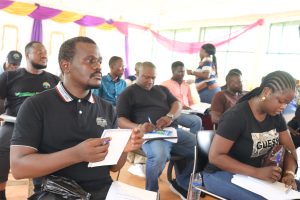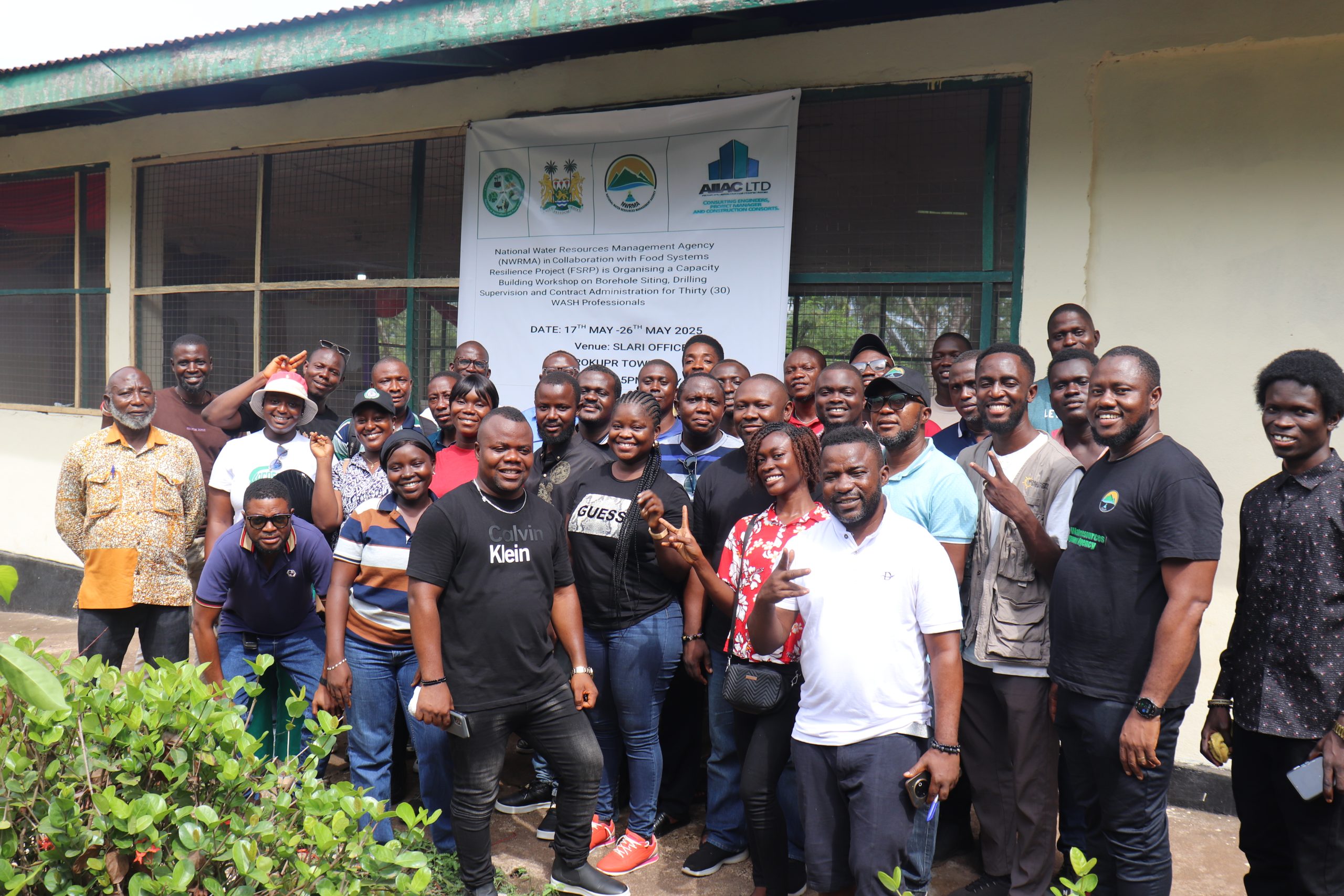The Government of Sierra Leone, through the World Bank-funded Food Systems Resilience Programme, has launched a comprehensive training initiative to enhance the skills of water sector professionals in critical areas of borehole design, drilling, and management. The program aligns with the President’s Feed Salone Drive and aims to bolster the country’s capacity to manage water resources sustainably.
The training will equip thirty (30) water, sanitation, and hygiene (WASH) professionals with advanced technical expertise in groundwater development. Participants include engineers and technical staff from the National Water Resources Management Agency (NWRMA), Sierra Leone Water Company (SALWACO), Guma Valley Water Company, private drilling firms, and district-level WASH Engineers from the Ministry of Water Resources.
Key components of the program include a five-day intensive course covering groundwater dynamics, cost-effective borehole design, project pricing, and contract management; another five days of hands-on experience in borehole siting, drilling, and borehole development and installation of two boreholes at Rokupr, Kambia District; and an ongoing coaching during the drilling of 22 boreholes: 12 for community use and irrigation which will improve community access to water supply, and 10 for the monitoring of groundwater monitoring.

The initiative addresses Sierra Leone’s urgent need for reliable water access and climate-resilient infrastructure. By training professionals to identify productive aquifers, manage drilling challenges, and supervise projects effectively, the program will improve the quality and sustainability of water supply systems nationwide.
Mohamed S E Juanah is the Director of Hydrological Services at the National Water Resources Management Agency, and a focal person for the FSRP. He says the training is a cornerstone of the programme’s efforts to strengthen water security. “By empowering local experts with cutting-edge skills, we ensure communities have access to safe water while advancing our National Early Warning System for climate resilience.” He said.
The drilling of two monitoring boreholes during the training phase will provide real-world insights into geological variability and enhance data collection for agro-hydrology and supporting informed decision-making in agriculture.
Following the training, participants will oversee the implementation of 20 additional boreholes in project districts, directly contributing to improved water access for vulnerable communities. The initiative underscores Sierra Leone’s commitment to achieving Sustainable Development Goals:
1: End Poverty;
2: Zero Hunger;
3: Good Health and Wellbeing;
6: Clean Water and Sanitation for All;
13: Climate actions; and
15: Life on land.

